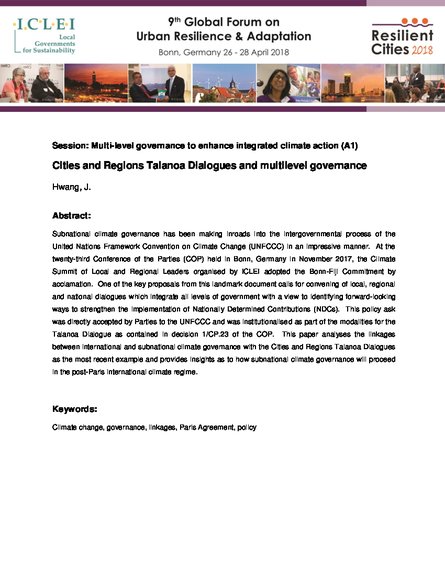
The rapid entry into force of the Paris Agreement in November 2016 heralded a new chapter of climate governance which was further solidified by the Conference of the Parties (COP) in the form of the launching of the Marrakech Partnership for Global Climate Action. However, criticism persists on the international climate governance coordinated by the UNFCCC, maintaining that it is too slow. The global climate governance architecture, created in 1992 with the UNFCCC, has yet to this day managed to curb global emissions to a level that is consistent with the long-term goal of the Paris Agreement.
This paper applies polycentric climate governance as a conceptual framework to analyse the constantly changing landscape of subnational climate governance. In doing so, the author focuses on the case study of the Cities and Regions Talanoa Dialogues initiative launched by ICLEI in February 2018 at the ninth World Urban Forum. This case study offers a wide array of policy insights on how SDGs, the Paris Agreement and the New Urban Agenda can create synergy each other.
Links
Resource collections
- Climate emergency
- Evaluating humanitarian action
- UN Habitat - Urban Response Collection
- Urban Response - Urban Crisis Preparedness and Risk Reduction
- Urban Response Collection - Community Engagement and Social Cohesion
- Urban Response Collection - Economic Recovery
- Urban Response Collection - Environment and Climate Change
- Urban Response Collection - Housing, Land and Property
- Urban Response Collection - Urban Crisis Response, Recovery and Reconstruction
- Urban Response Collection - Urban Resilience